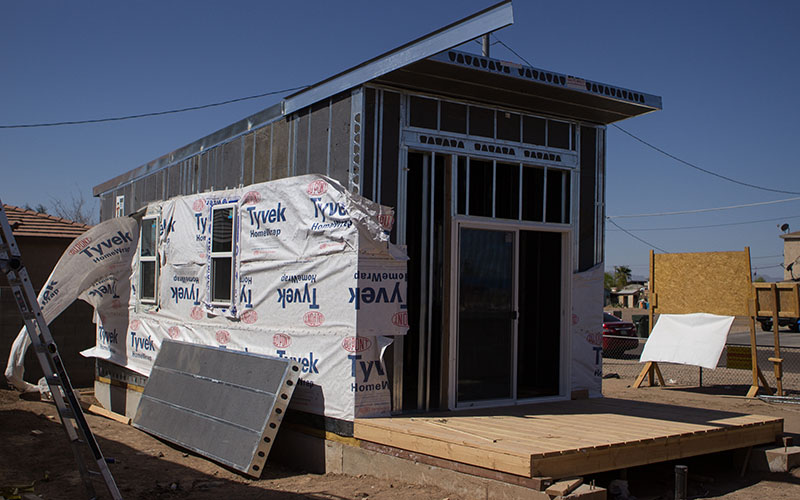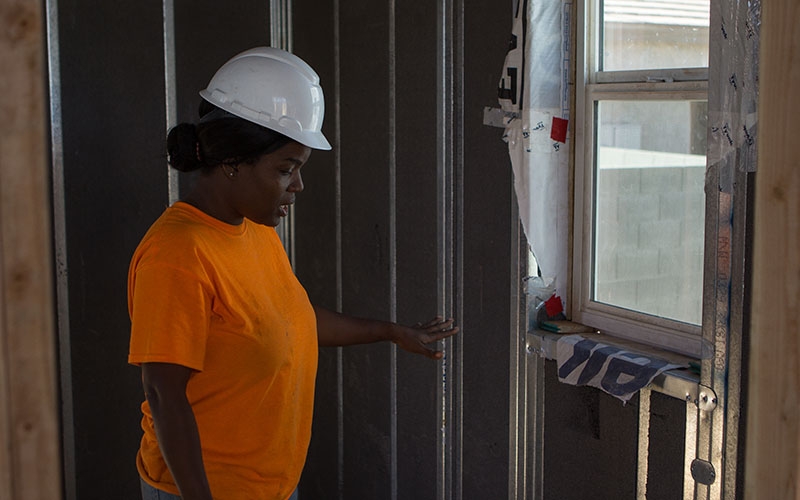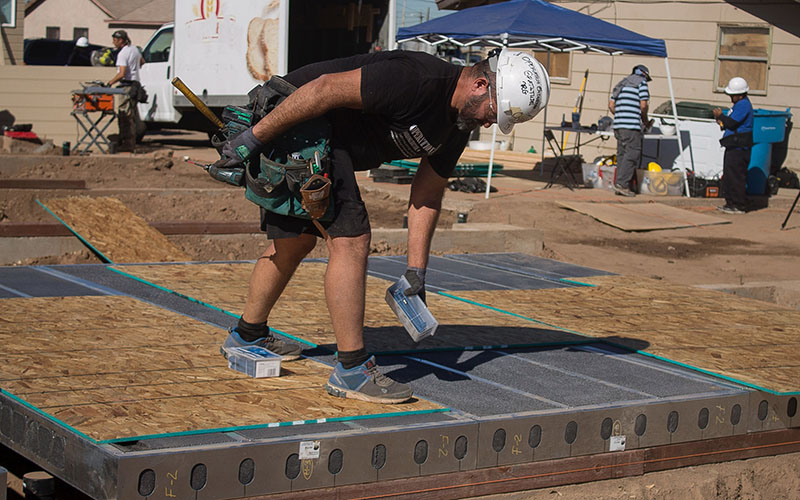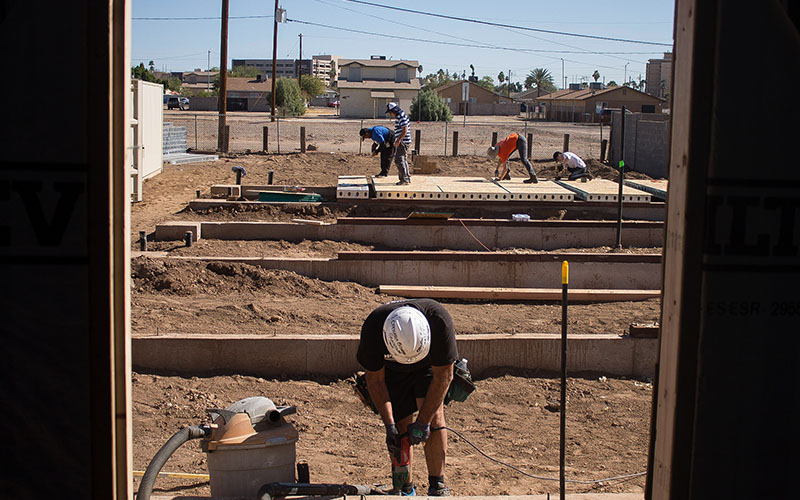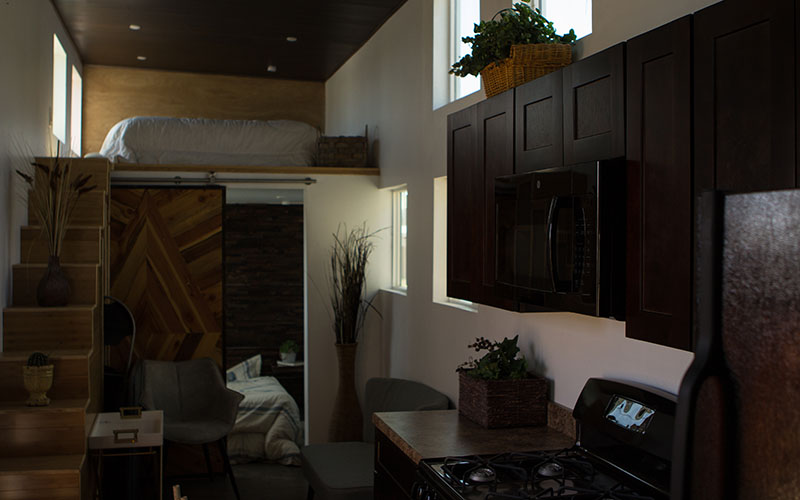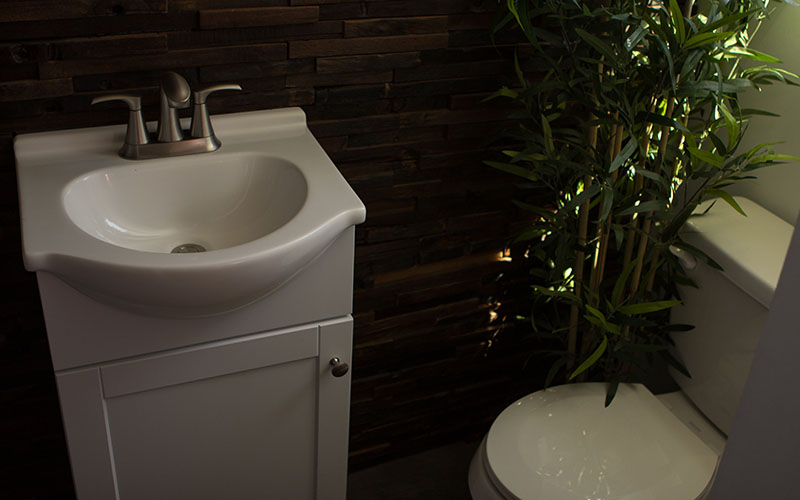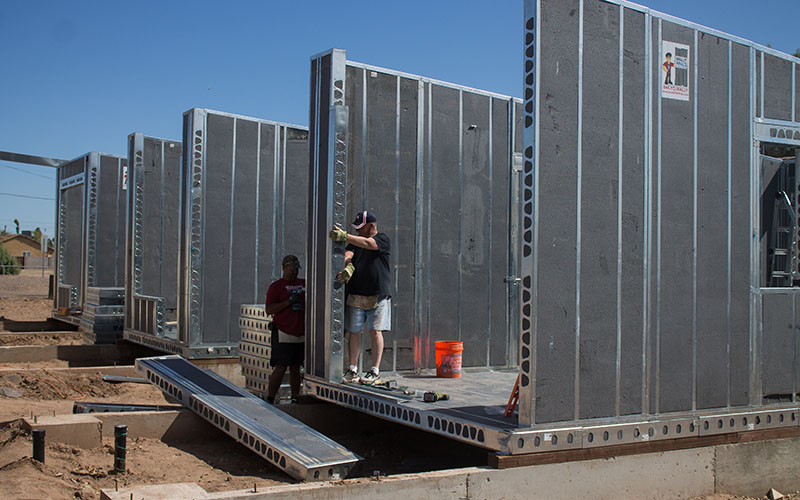
Volunteers with housing nonprofit Build Us H.O.P.E. work on one of three tiny homes that will become Village on 13th, a small enclave in Phoenix for military veterans who need homes. (Photo by Miles Metke/Cronkite News)
PHOENIX – Roman Coppola and Benjamin Strouse lift a piece of roofing, Charlie Ellis uses a drill and Jimmy Montgomery saws strips of siding into perfect lengths. They’re all volunteers, working to transform a vacant lot into a small enclave for military veterans who need homes.
Tiny homes.
The three homes in the development, called the Village on 13th because it’s near 13th Avenue and Buckeye Road, will be fully outfitted once it’s completed in May. Each house will be less than 350-square-feet, with a bedroom, kitchen and bathroom. The development will include parking spaces, a garden and landscaping with edible plants. The project is one of several spearheaded by Build Us H.O.P.E., a housing nonprofit.
Elizabeth Singleton, the founder, said nearly 450 veterans are homeless in Phoenix.
“I saw that there wasn’t enough housing available, and I just knew we needed to start building them,” she said.
Veterans can apply to live at Village on 13th through the organization’s website. Build Us H.O.P.E. has received more than 600 applicants, Singleton said, and will narrow the qualifying candidates to about 50 names, which will be entered in a raffle for the three homes.
The community will have access to resources for health issues, emergency needs and counseling. Singleton said she has seen some of the struggles veterans can face through her sister and her son, who have both served in the military.
“It’s very hard to get our veterans any kind of help,” she said. “Things like medication and supportive services are very hard to access when you are a homeless veteran. Those who serve our country should not have to experience some of the things that they do. If I can help with the rising housing issue, then by all means, let me,” she said.
As a general contractor and a veteran, Charlie Ellis said he felt compelled to work on the project.
“When you see firsthand how hard it can be to adjust once you’re back, even if you have a great support system – well, many people just don’t have that system. When you serve, you see how important it is to be able to come home to a home,” Ellis said.
Singleton said her organization also is partnering with Arizona State University students through Greenlight Solutions, a nonprofit that connects students with sustainability projects. They’re exploring whether the village can use solar power and greywater systems. Each tiny home was built of refurbished wood.
“I wanted to make it sustainable, something that would last and would be here for a long time, without leaving a lasting impression or long-term damage to the area around it,” Singleton said. “I appreciate the community we have created so far. We have brought so much life into this tiny dirt lot.”
Follow us on Twitter.
